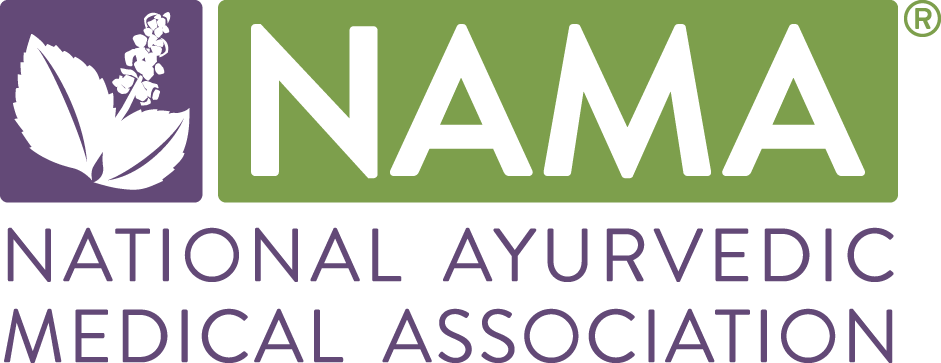To All of Our Valued NAMA Members and the Ayurvedic Community,
The situation surrounding COVID-19 is developing quickly around the globe and across our nation. We care deeply about our NAMA family and want to support you as much as we possibly can. As more resources become available, we will continue to update our members and our community with the latest resources and information so that you can all make informed decisions. We know that at this time, everyone is especially concerned about their health and the health of family and friends. Together we are all experiencing a cultural shift as we wait with hope that this pandemic will quickly decline so that life as we know it can return to normal.
Precautions to consider at this time:
Closely monitor national, state, and local government websites for updated information.
Implement a remote work environment in order to protect yourself and help stop the spread of COVID-19.
Consider additional resources that can help you to make informed decisions. One such resource to consider is the Johns Hopkins University Coronavirus Resource Center (https://coronavirus.jhu.edu) , a great source of accurate information about the pandemic.
Presentation of the Coronavirus:
Familiarize yourself with the signs and symptoms of COVID-19. There are three major symptoms of the coronavirus: fever, shortness of breath, and a dry cough. As with the flu, there will also be fatigue and body/muscle aches, but shortness of breath is less likely in uncomplicated cases of the flu. The common cold typically involves a low or no fever, a runny nose, and cough with phlegm. With the coronavirus, the cough tends to be drier and there is no runny nose. The coronavirus starts with a sore throat lasting 3–4 days, and then moves to the lungs and can lead to pneumonia. With the onset of pneumonia, fever, cough, and shortness of breath typically worsen.
Prevention of the Coronavirus:
Conservatively speaking and at this time, there are no known nutrients, botanicals, vaccines, or prescription or over-the-counter medicines available to prevent, treat, or cure COVID-19. Any statements that claim otherwise (and there are many circulating online) should be considered false and misleading. Despite this, our community should be encouraged to employ the ancient knowledge of Ayurveda, which by nature upholds “prevention” as a core principle. We are all so fortunate to be able to use Ayurvedic tools and practices that can promote resistance to infection and provide symptomatic relief. With their focus on the total health and well-being of the individual, Ayurvedic teachings remain an enduring source of wisdom that we can continue to wholeheartedly embrace in these uncertain times.
An obvious first step toward preventing any type of viral infection is frequent hand washing. The virus can live on your hands for 5–10 minutes, and a lot can happen during that time—you can rub your eyes or put your fingers in your mouth without even realizing what you’re doing.
After being out in crowds, change out of your clothes wash them. Although research has yet to determine how long the coronaviruses can survive on soft surfaces like fabric, health experts recommend washing clothes with hot water with regular laundry detergent to avoid bringing viruses from outside into your home. Preliminary studies suggest that the virus is more likely to persist for hours or even days on hard surfaces such as plastic, glass, and metal, so clean frequently touched surfaces such as countertops, appliances, phones, and doorknobs daily with soap and water and household disinfectants.
As with all illnesses, getting adequate sleep is also very important: Shoot for at least 7 ½–8 hours per night.
Manage your stress. This is incredibly important as we know that fear and stress compromise our immune system’s ability to fight off pathogens. Practicing pranayama techniques like long deep breathes and alternate nostril breathing, as well as carving out time for yoga and meditation, can and will help with stress management.
Additional considerations: Be sure to stay hydrated—dry mucous membranes in your nose and throat are more vulnerable to viruses. Ayurveda recommends sipping warm liquids throughout the day, a practice that many of us have already adopted to support healthy digestion.
We will continue to keep you informed as more resources become available.
In the meantime, in the words of Suśruta, “He is healthy (svastah), whose doṣas, agnis, and the functions of the dhātusand malas are in equilibrium; whose mind, intellect, and sense organs are bright and cheerful.”
Svasthasya rakṣaṇaṃ kuryādasvasthasya tu buddhimān
Kṣapayēd bṛmhayēccāpi dōṣadhātumalān bhiṣak
Tāvadyāvadarōga: syādētatsāmyasya lakṣaṇaṃ (Su. Sū. 15–40)
Sending you many blessings for good health and well-being,
Margrit Mikulis, ND, AD
NAMA President

